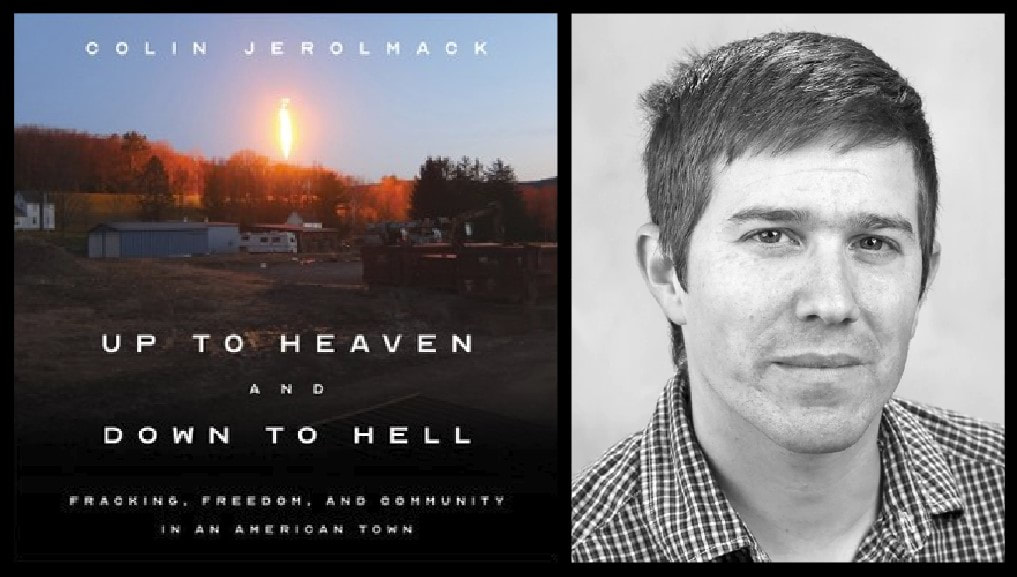|
A report in 2011 that Pennsylvania was poised to be the "Saudi Arabia of natural gas" inspired Colin Jerolmack, a native of the state who had since moved to New York City, to stay in Williamsport for eight months to research fracking and ultimately write a book. "That just sounded huge, surprising, scary. I really wanted to know more about it," he said. "Around that same time, my adopted state of New York had put a moratorium on fracking (that later became a ban), and there were all these debates and protests. I personally wanted to learn how fracking was going to impact Pennsylvania, particularly in the middle region of the state where a large amount of fracking was set to take place, and where there had previously been population declines as jobs had disappeared." Associate Professor of Sociology and Environmental Studies at New York University, Jerolmack took an eight-month sabbatical to temporarily move into an apartment in Williamsport and research fracking, while engaging landowners and others connected to the fracking industry while penning a new book: "Up to Heaven and Down to Hell: Fracking, Freedom and Community in an American Town." "When I moved there, I really didn't know anyone. I embedded myself into the community, which meant on Sundays I went to church at three different places in three different parts of the county," he said. "I spent time at an old-fashioned general store which was a place where all kinds of people gathered for hours at a time each day, especially if they were retirees or farmers in the winter when things were slower. I'd go three days a week and have breakfast and did other things like that, inserting myself into community space where people were gathering." He quickly learned to adjust some of his preconceived notions about fracking in central Pennsylvania. "If you were going to ask what I thought the story was going to be, even though I was very open to what was happening, I thought it was going to be a story on how fracking splits a community in half. You know, there are all sorts of people who are for it, all kinds of people who were against it and how that kind of conflict plays out," he said. "The big surprise was that just about everyone outside of the city of Williamsport itself -- basically everyone who owned land -- just about everyone supported it (fracking). "There was this moment where I was like, well, gee, now what? I figured I would spend quite a bit of time with people who were for it and quite a bit of time with those against it and the story would be about this conflict, and there wasn't really conflict." The focus of the book instead evolved into looking at mineral rights, landowner responsibilities and telling the stories of people who were impacted by fracking in ways they didn't anticipate. This included families whose well water was contaminated with "explosive levels" of methane. In the newest episode of the Middle Susquehanna Riverkeeper Podcast, we chat with Colin about the stories he shares via this book, what he learned along the way and his impressions of different people connected to fracking in the region, including state agencies such as the DEP and DCNR. Colin also talks about an upcoming event at the Community Arts Center in Williamsport where he will talk about the book and be joined by some of the individuals who share their stories in the book. For more about the event itself, click here. You can listen to the full episode here: Check out our podcast page for the most up-to-date list of previous podcast episodes. Also, you can access them individually here:
0 Comments
Leave a Reply. |
AuthorsRiverkeeper John Zaktansky is an award-winning journalist and avid promoter of the outdoors who loves camping, kayaking, fishing and hunting with the family. Archives
July 2024
Topics |

 RSS Feed
RSS Feed